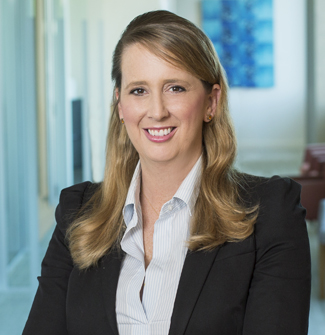It seems we can’t find what you’re looking for. Perhaps searching can help.

For her litigation practice, Amy’s ability to distill the most complicated technology across an array of fields, including telecommunications, semiconductor manufacturing, renewable energy, cloud computing, and big data, into relatable, every day concepts that has made her successful in persuading judges and juries alike. She has led trial teams, litigated, and tried cases in state court in California, numerous District Courts, the International Trade Commission, and has briefed appeals before the 9th Circuit, the Federal Circuit, the Supreme Court of California, and the United States Supreme Court.
Whether litigating patent, trade secret, or IP contract disputes, Amy strives to put herself in her client’s shoes to ensure personalized results tailored to each client’s business objectives. As SAP’s General Counsel Landon Edmond commented to Acritas, Amy “has acquired a great knowledge of our business, and therefore you know you can trust her in a wide variety of topics and to get the right colleagues within her firm involved across the globe.”
Amy also provides comprehensive IP counseling on issues including trade secrets protection, employee departure investigations, freedom to operate analysis, licensing strategies, data privacy protection, and regulatory compliance. She has also conducted comprehensive patent portfolio reviews and assisted with IP corporate transactions.
In addition to her IP work, Amy devotes significant time to her pro bono work. For more than a decade, she has assisted domestic violence victims, as well as led Orrick’s Bay Area summer program that enables law clerks to be certified to argue in Family Court to obtain Temporary Restraining Orders for domestic violence clients.

